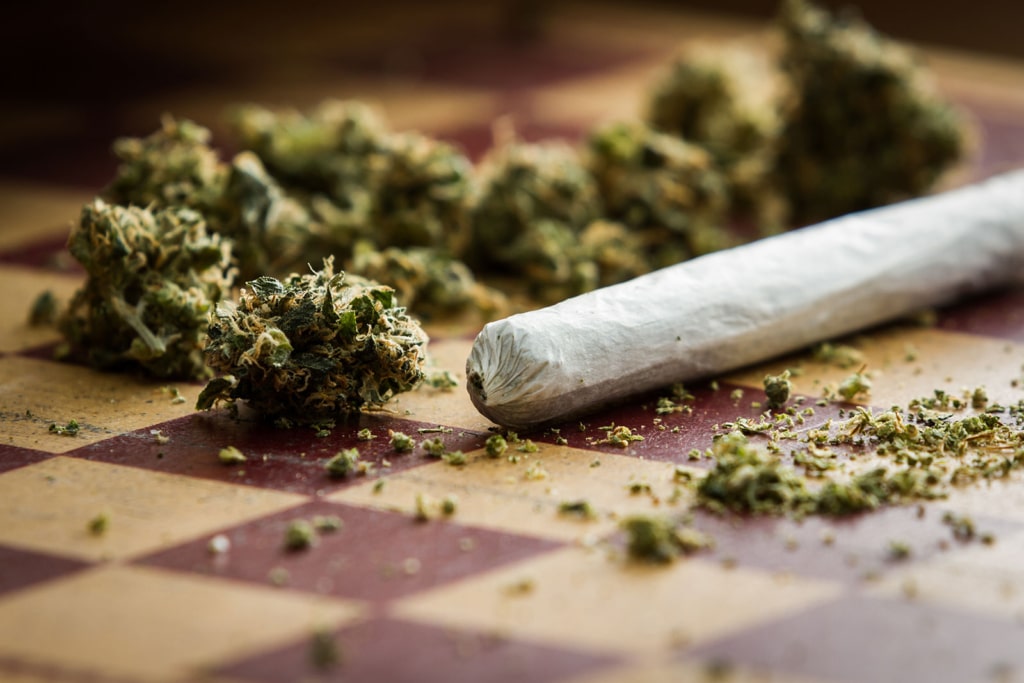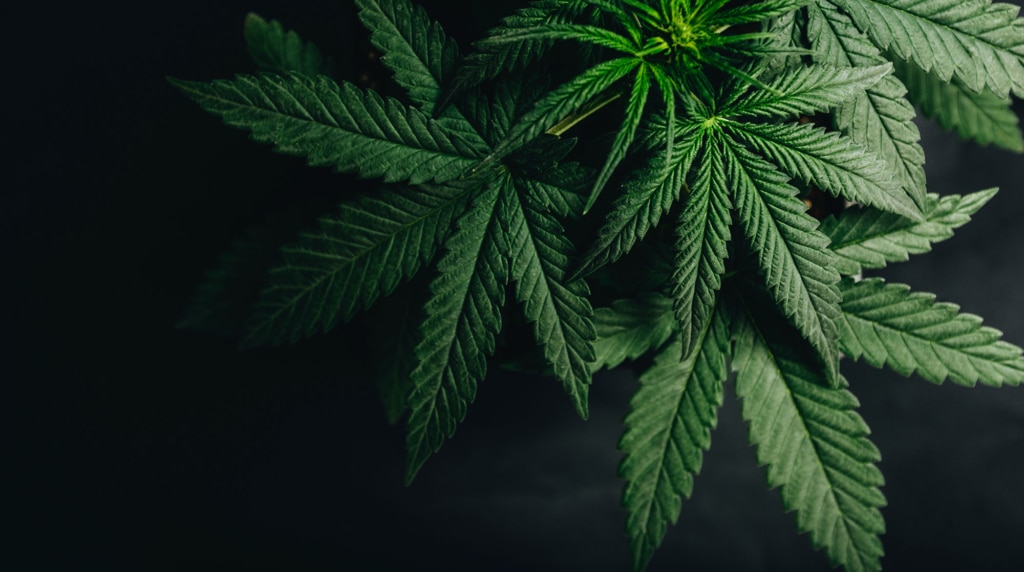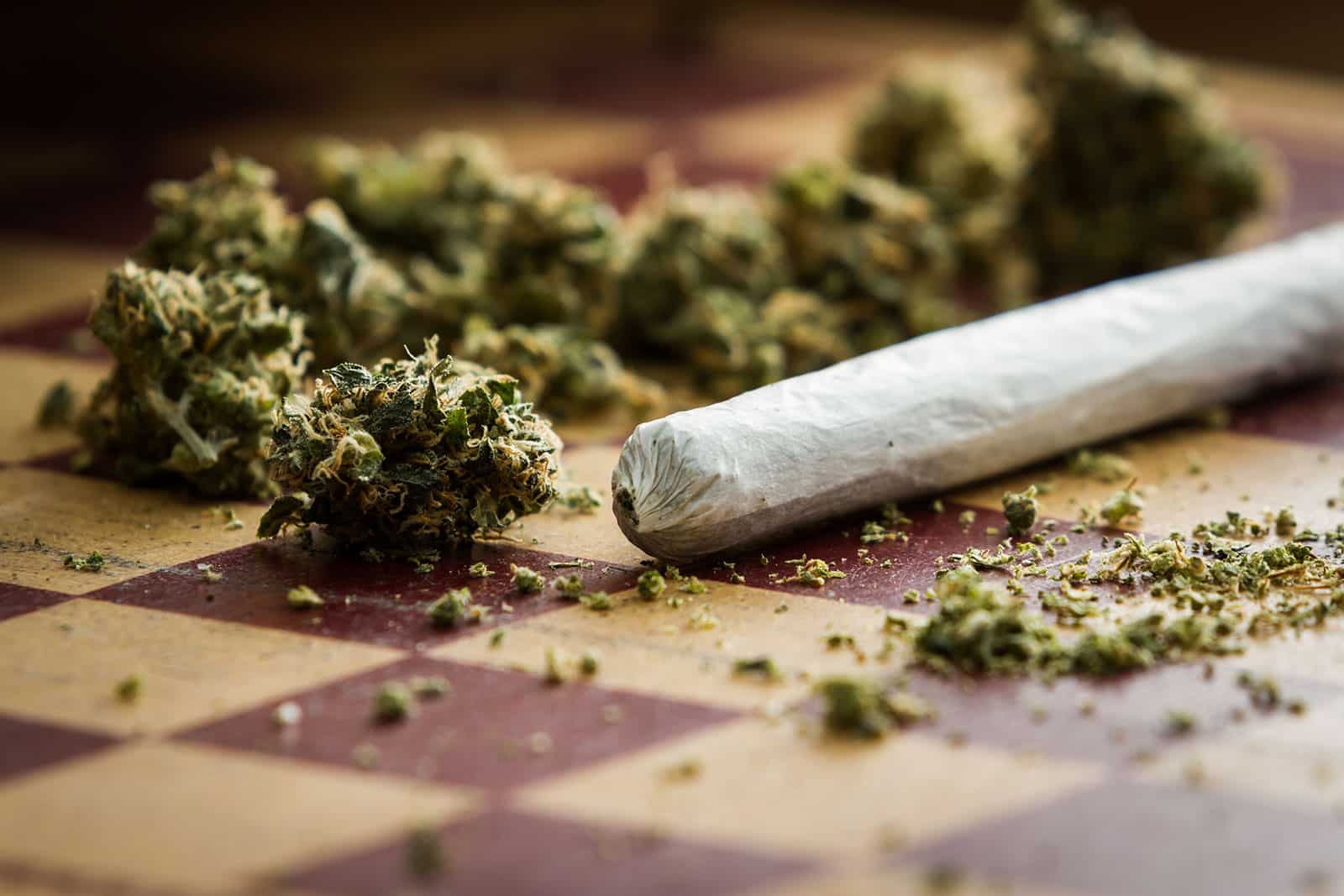Around 17% of Americans smoked marijuana in 2023, according to statistics from a Gallup report.
Although most people don’t report severe risks associated with using this drug, recent research indicates that heavy use of cannabis can be highly hazardous.
It can cause cognitive impairment and a lack of motivation to fulfill the simplest work and life responsibilities. It can even increase the chances of developing mental health disorders in people who regularly use it.
So, if you or a family member suffers from cannabis use disorder, it’s wise to consider quitting the drug promptly.
This guide will help you find the best marijuana addiction treatment in New Jersey.

Table of Contents
- 1 What Is Marijuana and How Is It Used?
- 2 What Are the Effects of Marijuana?
- 3 Is It Easy to Overdose on Marijuana?
- 4 Is Marijuana Addictive?
- 5 Marijuana Use Disorder Signs
- 6 Marijuana Withdrawal Symptoms
- 7 Marijuana Addiction Treatment Options
- 8 Looking for the Ideal Marijuana Addiction Treatment Program in New Jersey?
What Is Marijuana and How Is It Used?
Marijuana, also known by street names like grass, weed, ganja, pot, Mary Jane, and bud, is one of the most used substances in the US today. It’s made from different parts of the Cannabis Sativa plant.
The plant contains a psychoactive chemical called tetrahydrocannabinol (THC), known for its mind-altering effect. This compound is the main driver of marijuana’s effects.
Cannabis can be used in various ways. Some smoke it in the form of dry flowers rolled in cigarettes, referred to as joints. Others inhale it in water pipes or rolled in cigar wrappers.
In addition, some people prefer to consume marijuana by incorporating it into baked goods like brownies or cookies or brewing it in their tea.
Another way to consume cannabis that has become recently popular is using it in vaporizers, also known as weed pens, vapes, or vape pens.
Although it’s legalized in several US states, at a federal level, weed is classified as a Schedule I drug. This means it has a high potential for abuse.
What Are the Effects of Marijuana?
Using marijuana can cause several effects, but how quickly they emerge depends on the way of consumption.
If a person smokes marijuana, the substance’s chemicals, including THC, quickly pass from the lungs into the bloodstream. As such, the individual will feel the effects instantly.
Nonetheless, when the person incorporates marijuana into their foods or beverages, its chemicals need to pass through the digestive system.
In this case, the individual feels the effects 30 to 60 minutes after consuming the marijuana-containing food or beverage.
Given that, the following are the most common effects of marijuana:
- Euphoria
- Deep relaxation
- Increased appetite
- Laughter
- Heightened sensory perception
- Anxiety
- Changes in the perception of time
- Distrust
- Panic
- Fear
Besides these effects, taking a high dose of marijuana can cause symptoms such as illusions, hallucinations, and an inability to identify one’s identity.
Is It Easy to Overdose on Marijuana?
The good news is that reaching a life-threatening marijuana dose is rare. However, there’s a possibility of experiencing the above-listed effects on a severe scale if a person consumes high doses of the substance.
Experiencing intense side effects is also highly probable when ingesting marijuana through beverages or food. This is because, in this case, a person is more likely to consume higher quantities, leading to a high dose, as the effects take some time to kickstart.
Worse still, people under the effects of marijuana are prone to injuries or even death due to falls, car accidents, or engaging in violence.
Is Marijuana Addictive?
Although it’s not the most addictive substance, around 30% of people who consume marijuana are likely to develop cannabis use disorder. This disorder is the starting point for cannabis addiction development.
The probability of marijuana dependence becomes even higher if the person starts to use marijuana in their teenage years.
Here’s how this addiction develops: When an individual consumes marijuana regularly, they get accustomed to its enjoyable effects. This way, they start to increase the dose to experience greater effects.
By doing so for a long time, the person is highly likely to experience alterations in brain circuitry. The brain will start to reduce the production of some of the endocannabinoid neurotransmitters as a response to continuously increased doses.
At this point, if the person tries to stop using marijuana or decrease the dose, they’ll feel multiple withdrawal symptoms varying in severity.
As such, they might want to quit marijuana but can’t do so despite its negative impact on their quality of life.

Marijuana Use Disorder Signs
Only a healthcare professional can accurately diagnose a person with a marijuana use disorder.
Still, some signs indicate a high probability that an individual is suffering from cannabis dependency.
If someone shows two or more of the following symptoms in a 12-month period, they’re highly likely to be struggling with cannabis addiction:
- Using marijuana in large amounts or for an extended period
- Inability to manage or cut down marijuana use despite persistent desire
- Spending a considerable amount of time using marijuana and recovering from its effects
- Using cannabis in situations where it’s dangerous to do so, such as on the road or when operating machinery
- Experiencing various withdrawal symptoms when reducing the frequency of drug use or stopping it
- Continuing to use marijuana despite suffering from psychological or physical issues caused by its consumption
- Developing cannabis tolerance, which requires the user to increase the dose over time to achieve the same effect
- Avoiding social, recreational, and occupational activities because of marijuana use
- Failing to meet work, home, or school responsibilities because of cannabis use
- Keeping the use of marijuana despite running into a lot of interpersonal and social problems because of this behavior
Marijuana Withdrawal Symptoms
When a person suffers from cannabis use disorder, they’ll experience a variety of withdrawal symptoms when they stop using the substance.
These symptoms can last from just a few days up to a couple of weeks, based on the severity of the addiction.
The following are the withdrawal symptoms associated with long-term abuse of this drug:
- Insomnia
- Depression
- Aggression and anger
- Anxiety
- Headaches
- Restlessness
- Vomiting and stomach pain
- Nausea
- Decreased appetite
Marijuana Addiction Treatment Options
As of writing these words, the FDA hasn’t yet approved any medication as a treatment for marijuana abuse disorder. However, there are still other options an individual can go for to get over their drug addiction. The following are the recommended ones:
Medically-Assisted Detox
Detoxification is the first step toward breaking free from any drug, and marijuana is no exception.
The best way to proceed with the detox process varies from one person to another, according to the severity of the addiction.
Nonetheless, medically assisted detox is recommended in most cases. The need for medical supervision in this treatment phase is because most people will have a hard time controlling the withdrawal symptoms on their own.
Addiction specialists and physicians, however, can equip the patient with the right techniques and medication to overcome these withdrawal symptoms without relapsing.
Medical intervention becomes even more important for people who use marijuana combined with other physically addictive drugs.
This is because, in this case, the withdrawal symptoms can become much more intense.
Given that, marijuana detox can take place in an outpatient or inpatient setting, based on the person’s health condition.
Cognitive Behavioral Therapy (CBT) Combined with Other Therapies
Like with many other psychological issues, psychotherapeutic treatments have shown remarkable results in helping people recover from cannabis use disorder. It significantly reduced the patient’s quantity and frequency of marijuana use, eventually leading to quitting the drug.
This is why research recommends using a combination of Contingency Management (CM), Cognitive Behavioral Therapy (CBT), and Motivational Enhancement Therapy (MET) for treating marijuana abuse disorder.
Here’s how each of these therapies can help a person throughout their treatment journey:
- CBT helps patients take action to disrupt their negative thought patterns and behavior. It also assists them in developing coping skills and relapse prevention techniques.
- CM helps patients form positive habits such as regularly attending counseling sessions and staying away from weed-smoking triggers. This is done by rewarding people who follow these habits with gift cards or vouchers.
- MET helps the person set clear goals and maintain motivation by encouraging them to explore their ambivalences in a clever, non-confrontational way.
Support Groups and Family Therapy
Some people with marijuana addiction will considerably benefit from joining support groups. This group therapy will help them maintain long-term sobriety.
It allows the patient to connect with others who share the same recovery goal. This gives them the opportunity to support each other.
Likewise, family therapy can be a great treatment method, especially for adolescents. It encourages the individual’s family members to build better relationships with them.
These therapy sessions also guide these family members to support the patient in their recovery journey.
Looking for the Ideal Marijuana Addiction Treatment Program in New Jersey?
Breaking free from marijuana dependency has never been easy. Still, following a perfectly designed treatment plan created by a team of medical professionals can give the patient incredible support along the process.
At NJ Addiction Resources, we’ll help you find the most suitable marijuana addiction treatment program in New Jersey tailored specifically to your condition.
Ready to recover from marijuana addiction and reclaim your life? Contact us now to find the right rehab center for you or your loved one in New Jersey.

